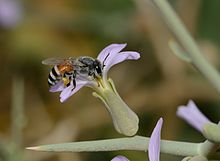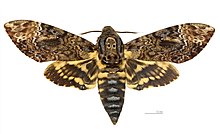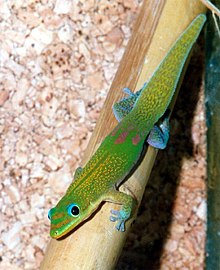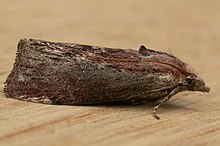In the UAE, there are very few hobby beekeepers as most are commercial honey farmers. Nevertheless, do not let this deter you. While we may be few in number, we hobby beekeepers are keen and are happy to welcome other learners to our buzzing community. It is a very interesting, relaxing, and rewarding hobby.
You will never stop learning, and providing you grasp the basics, you can become involved as little or as much as you like. Some of the best reasons to take up beekeeping are:
This is probably the sweetest reason why bees are kept. Although yields are lower here in the UAE you can still reasonably expect 5 kg of honey on average per year. The satisfaction of harvesting your own honey is incomparable, and the smell of honey mixed with that of the the wax is simply intoxicating! Once you have a good supply of honey it is surprising what uses you will find for it. For example a jar of honey is a good thank you gift and makes a great addition to sauces and marinades. Beeswax can be used for making candles, polish, soap, cosmetics, etc. All these things can be made with equipment that is available in most household kitchens. Instructions and recipes are readily available on the internet or in beekeeping forums.
Living in air conditioning as we do here in Dubai for much of the year, beekeeping is a great excuse to spend time outside in fresh air with your ladies for company. Bees themselves are very interesting, but so is the wildlife in and around the hive. You will soon instinctively start keeping track of blossoming seasons, noticing the different trees and flowers around you and catching yourself thinking “bee food” when you see a blooming acacia.
Many beekeepers are keen gardeners and have noticed the decline in pollinating insects, bees in particular. A couple of bee hives in your garden will certainly improve the pollination in your own garden and the surrounding area, resulting in even more beautiful flowers, fruits and vegetables.
Dubai is a melting pot of nationalities and personalities. Beekeeping can be either a solitary pursuit or you can become actively involved in our fledgling Beekeepers Association and meet new people.
You think you are ready to become a hobby beekeeper? then get in touch with the Beekeepers Association. We have an apiary with several hives and beekeepers who are happy to introduce you to the world of beekeeping.
We recommend that before investing in equipment and supplies, you first attend several practical bee demonstrations organized by the Beekeepers Association to make sure beekeeping is for you.
How do I learn?
The first step to becoming a successful beekeeper is to learn as much as you can about the bees. Even as a seasoned beekeeper, you will keep learning something new everyday.
Here are a few suggestions for you to jump start:
How much time do I need to commit?
There are basically only two seasons in the UAE: Summer and the rest of the year 🙂
The amount of time required varies depending on the seasons. During the cooler months (October-May), general maintenance requires periodic inspections of about 30-60mn per hive weekly. These inspections are to ensure your queen is laying eggs, your workers are building up honey stores, your colony has enough space to expand, queen cells are properly managed to avoid swarming and your hive is pest/disease free.
During summertime (June-September), your role is of utmost importance: you need to take your colony through the harsh UAE summer where temperatures can reach 50°C. This consists of (1) finding a cool place for your hive, ideally on a mountain top or simply in a well ventilated and shaded spot, and (2) feeding your colony syrup, pollen patties and of course ample supply of fresh water.
There are basically only two seasons in the UAE: Summer and the rest of the year 🙂
The amount of time required varies depending on the seasons. During the cooler months (October-May), general maintenance requires periodic inspections of about 30-60mn per hive weekly. These inspections are to ensure your queen is laying eggs, your workers are building up honey stores, your colony has enough space to expand, queen cells are properly managed to avoid swarming and your hive is pest/disease free.
During summertime (June-September), your role is of utmost importance: you need to take your colony through the harsh UAE summer where temperatures can reach 50°C. This consists of (1) finding a cool place for your hive, ideally on a mountain top or simply in a well ventilated and shaded spot, and (2) feeding your colony syrup, pollen patties and of course ample supply of fresh water.
A typical starter set consists of 2 hives/colonies, a coverall suit, a pair of beekeeping gloves, a smoker and beekeeping tools. Depending on hive type and overall quality, the cost for such a starter set ranges between AED 1,000 and AED 3,000.
We have a wide range of equipment and invite you to ‘try before you buy’ at our Beekeepers Association’s open days.
There a few suppliers in the UAE and most of them are located in Al Dhaid, Sharjah. Our current list of suppliers is available here.
Alternatively, the Beekeepers Association offers a hassle free solution. We will advise on a suitable starter set for your needs, deliver the set to your house and assist you with your initial setup for an extra fee of AED 500. This fee will be used for the running costs of our non-profit entity.
Hopefully yes! people pay a premium price to get a botox shot or apitherapy treatments 🙂
On a serious note, getting stung is part of beekeeping and it will happen even if you are extra careful handling your bees; I was stung a few times through my protective suit! Most stings, however, are due to poor handling of the bees or to naturally aggressive colonies.
Reactions to bee stings range from mild reaction with redness and swelling, to moderate reaction with intense itching, swelling and pain, to severe allergic reaction with anaphylactic shock (difficulty breathing, nausea, swelling of the throat and tongue, loss of consciousness, etc.)
In most cases, bee stings don’t require a visit to your doctor. In more-severe cases, you’ll need immediate care.
To our knowledge, there is no UAE-wide regulation on backyard beekeeping. We are working on it.
For the time being, our recommendation is to check that there are no restrictions from your community developer.
Yes!
It is crucial for you to understand that the word ‘beekeeper’ consists of: Bee and most importantly Keeper. Our duty as responsible beekeepers is to keep our bees alive and help them build a strong colony. If you grasp this principle you will be a great beekeeper and your bees will love you for it.
Educate yourself on bee pathologies and their treatment, predators, swarming seasons, feeding protocols, etc. It is heartbreaking to lose a colony and sadly it will happen to you (it happens to the most seasoned beekeepers!). Your role is to minimize the risk of it happening.
With that said, don’t worry too much, enjoy the experience and let the bees transport you to their fascinating world!
The Beekeepers Association is closely working with beekeepers, environment entities, and government bodies in order to create a beekeeping calendar for the UAE.
This comprehensive document will catalog the different pollen rich plants, their blooming seasons and their habitat. (to gain a better understanding of harvesting and swarming seasons)
Coming Soon!
Apis florea, also called the Arabian or Asian dwarf honeybee is a tiny red-brown bee that typically measures between 7 and 10 mm, a small size compared to other honeybees. A colony contains around 5,000 individual bees and builds a characteristic single, exposed open-air comb usually on tree branches or shrubs, which makes it vulnerable to predators.
Several attempts at domesticating Apis Florea were unsuccessful. ‘Their typical practice of open-air nesting, prevents their being kept in man-made hives for reasonably long periods, while hiving colonies in specially-constructed containers is essential in that it enables the colonies to be manipulated” [source: FAO-Beekeeping in Asia]
Due to the extensive urbanization of the UAE, these wild honeybees are subject to the loss of their natural habitat. During swarming seasons, dwarf honeybees will most often land on someone’s gardens or balcony. Sadly, the 1st reflex of the majority of these un-expecting hosts is to call pest control, which means inevitable killing of the colony. This behavior is a direct consequence of the lack of awareness and information on the importance of these fragile native bees as the primary pollinator in the country.
The Beekeepers Association endeavors to raise the status of Apis Florea to protected species, in coordination with Government bodies and environmental entities.

Apis Mallifera, this is the species that is used by UAE commercial and hobby beekeepers alike. The UAE imports over 95% of the queens required to produce honey – which represents about 500,000 packaged bee colonies every year – mostly from Egypt but also from Oman and Yemen. The varieties brought in are Buckfast, Carniolan, Italian and Australian. Saskatraz Bees are also just about to be introduced. If possible we suggest this breed for novice beekeepers as they are known for their gentle disposition and honey yields.
Unfortunately, these bees are not equipped to survive UAE’s harsh climate. Indeed, the local summer, where temperatures often reach 50°C, combined with pests, parasites, shortage of foraging plants and poor hive management generally leads heavy hive losses every summer. For most beekeepers this is a sad fact of life. Some keepers move their bees to the high altitudes of Hatta Mountains and with careful management they can survive.
The good news is that there is a new queen rearing initiative in Hatta. One of its main goals is to create a new bee breed – ‘The Dubai Breed’. This honeybee will have unique traits that facilitate the production of high quality/high yield honey and be more suitable to local temperatures.

Bee Eaters, Beautiful, yet lethal to our lovely ladies, these winged warriors enjoy nothing more than feasting on insects and have a sweet tooth for honeybees. Attempts to limit their damage include the use of nets (with limited success), Falcons (they out maneuvered them), and scarecrows – which didn’t scare.
Any new ideas are welcome!
Ants, this is a very common problem here in the UAE. These little sneak thieves like to up and rob the hive of honey, pollen and brood. This problem will most likely occur with a weak hive, so if you see this happening check your ladies for other underlying issues. Be very cautious if you have a small young colony, they could decimate it in no time. Local solutions that seem to work include placing the hive on legs and placing those legs into cups generously smeared with Vaseline or filled with oil, and make sure you remove anything that bridges between the ground and the hive. We also recommend that you get into the habit of placing hive debris from your inspections directly into a bucket, otherwise you’re basically sending out an invitation to other animals and insects that there’s a free ‘Dubai Bee Brunch’ to be had.

Death-Head Hawkmoths Once again these are beautiful to look at but not good news for your hive. These bandits hide in plain sight by producing an odour similar to that of the honeybee. This allows them to slip into the hive incognito and once there, they feast on the honey. Should you see them lingering nearby or gaining access, we recommend reducing the opening of the hive. Weak colonies are particularly prone to this little thief.
Check out one of our member’s awesome video of a death-head hawkmoth robbing a hive, here.

Geckos love nothing more than a free supply of honey and bees. They often creep in via a loose lid or an opening that’s too big. To eliminate this problem, simply reduce the opening on your hive so your ladies are more protected. The poor construction of some locally built hives make it easy for geckos to sneak in from the loosely closed lid, so make sure you tightly close your lid once you finish your inspection and double check the inside of the lid to make sure that there are no stowaways before you replace it.

Varroa Destructor, This is the mite that is most talked about in the press as being the super-villain of the honey bee world. Their spread is a direct consequence of the importation of commercial honeybee stocks and the gradual spread of the pest through Asia. There are a number of remedies against Varroa but we have found that the most effective and simple-to-use solution are the Varroa Strips. This is because other methods involve precise measurement, dosage and hive knowledge which many hobby beekeepers may not have.

Wax Moths If Varroa are the super-villains of the bee world then the wax moth isn’t far behind. These pests can reduce a seemingly healthy hive in double quick time to a complete mess of webs and wax debris. Weak hives are especially susceptible to the wax moth. With this pest, prevention is better than cure. We recommend preventative treatment to control wax moths called B-401, used after the honey harvest, just before the frames are stored. It is a safe and environmentally friendly product that is sprayed onto the frames.
In cases of minor infestation you can cut out the affected areas and freeze the frames for at least a week to kill of any larvae. For bad infestation there is no solution but to burn the entire frame and also the hive (if it’s wooden). Honey smelling campfire in the desert anyone?

